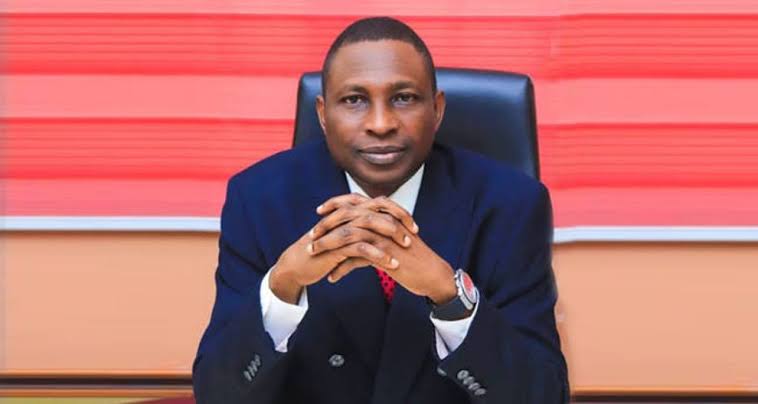Africa
Open Letter to EFCC Chairman Ola Olukoyede: Exploring Advanced Strategies to Combat Anticipatory Asset Declaration Fraud -By Forensic Psychologist John Egbeazien Oshodi
Transparency and public engagement are equally critical components of successful anti-corruption strategies internationally. Empowering citizens with accessible, user-friendly platforms to review public officers’ asset declarations and to report suspicious discrepancies significantly strengthens social oversight and civic participation. Whistleblower protection laws and incentive programs encourage insiders to come forward with information, often becoming indispensable sources for uncovering hidden corruption. These mechanisms enhance institutional accountability by creating a culture where corruption is socially intolerable and public vigilance is actively supported.

Dear Chairman Olukoyede,
The recent disclosures by the Economic and Financial Crimes Commission regarding anticipatory asset declaration fraud reveal a troubling and sophisticated evolution in Nigeria’s corruption landscape. This particular modus operandi—where public officers declare assets and properties that do not yet physically or legally exist—represents a carefully orchestrated attempt to manipulate governance frameworks. Rather than being a mere oversight or administrative gap, this is a deliberate effort to manufacture a veneer of legitimacy to shield future illicit enrichment. The consequences are far-reaching: such premeditated deception erodes public confidence, undermines the rule of law, and damages the social contract between government and citizens. Recognizing the gravity of this challenge is the first step toward formulating meaningful responses that can adapt to these emerging criminal innovations.
This situation points to deeper institutional vulnerabilities within our systems, which currently place considerable trust in self-reporting mechanisms, often without adequate verification safeguards. For example, the well-publicized case of a politician falsely declaring a ₦3 billion property before its actual existence underscores a systemic weakness that extends beyond individual misconduct. It reveals how inadequate cross-validation—through physical inspections, geospatial verification, or integration with independent registries such as land titles and tax records—allows these deceptive acts to go undetected. The failure to imagine and guard against such forward-looking fraudulent schemes reflects an urgent need for systemic reforms. Strengthening these oversight mechanisms must be a national priority if we are to stem the tide of anticipatory asset fraud and restore integrity to public service.
In addressing these complex challenges, it is useful to draw on research and practices from global anti-corruption and law enforcement agencies that confront similarly sophisticated criminal networks. Many of these agencies have adopted multidisciplinary approaches, assembling teams of forensic accountants, cyber intelligence experts, behavioral scientists, and legal professionals to investigate and prosecute corruption comprehensively. They leverage advanced technological tools—such as artificial intelligence for anomaly detection, blockchain technology for immutable record-keeping, satellite imagery for physical asset verification, and integrated data systems for cross-agency information sharing. These technologies and collaborative frameworks enable a proactive, intelligence-led approach to investigations, allowing authorities to anticipate corrupt schemes and intervene before illicit enrichment is entrenched. Considering these models can provide EFCC with valuable insights into designing adaptable and effective countermeasures.
Moreover, these approaches extend beyond technology into the human domain. Behavioral analysis and forensic psychology techniques are increasingly used to understand how corrupt actors rationalize their actions, enabling more effective interview and interrogation strategies that can detect deception and uncover the underlying motivations and networks. Covert operations, including the use of undercover agents and strategic insider cooperation, have also proven effective in penetrating corruption rings and gathering critical evidence from within. Legally, many jurisdictions now apply statutes modeled on organized crime laws, which enable prosecutors to charge entire networks rather than merely individuals, thereby increasing the scope and impact of enforcement. These comprehensive legal frameworks, combined with advanced investigative tactics, are crucial for dismantling entrenched corruption effectively.
Transparency and public engagement are equally critical components of successful anti-corruption strategies internationally. Empowering citizens with accessible, user-friendly platforms to review public officers’ asset declarations and to report suspicious discrepancies significantly strengthens social oversight and civic participation. Whistleblower protection laws and incentive programs encourage insiders to come forward with information, often becoming indispensable sources for uncovering hidden corruption. These mechanisms enhance institutional accountability by creating a culture where corruption is socially intolerable and public vigilance is actively supported.
While these models and approaches offer promising directions, their successful application depends heavily on adapting them thoughtfully to Nigeria’s unique institutional, legal, and cultural context. Strong political will, institutional integrity, inter-agency collaboration, and ongoing capacity building are essential enablers for translating these research-backed strategies into impactful reforms and sustainable results. It is equally important that these initiatives are implemented transparently to maintain and deepen public trust.
Chairman Olukoyede, I offer these reflections and research-informed recommendations not as prescriptive edicts but as contributions to the critical dialogue and planning needed to elevate EFCC’s operational capabilities. The challenges posed by anticipatory asset declaration fraud are complex, but they are not insurmountable. With strategic innovation, unwavering commitment, and collaborative resolve, EFCC can strengthen Nigeria’s public institutions, protect public resources, and ultimately restore confidence in governance.
The Nigerian people watch with hope and expectation. They deserve to see measurable and timely outcomes—effective actions that demonstrate the rule of law is not an abstract ideal but a lived reality. I remain committed to supporting EFCC’s mission with expertise and collaborative partnership, should such support be welcomed.
Respectfully,
Dr. John Egbeazien Oshodi






















